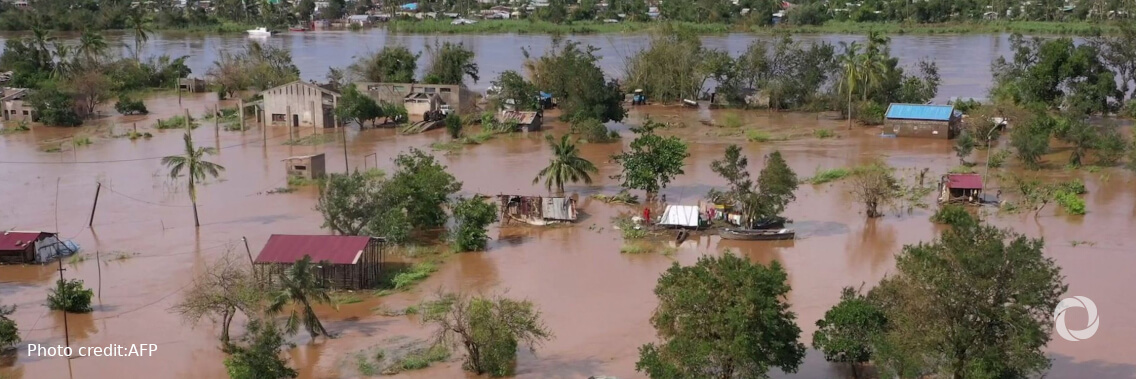Residents of Beira and surrounding areas are reeling from the impact of Cyclone Eloise, navigating streets waist-deep in floodwaters littered with debris in some areas, as the scale of the damage becomes more apparent.
The International Organization for Migration (IOM) is working closely with the Government of Mozambique, the United Nations, and the humanitarian partners and clusters to ensure coordination in the response. The assessments began immediately following Cyclone Eloise’s arrival to determine the communities’ most pressing needs.
According to the National Institute for Disaster Management and Risk Reduction (INGD), more than 175,000 people have been affected by the cyclone in Mozambique, and over 8,000 houses have been destroyed, damaged, or flooded. Thus far, six people are confirmed dead since Eloise made landfall on January,22.
Three days later, a total of 32 accommodation centres have been activated in Sofala province to provide temporary shelter for over 15,000 men, women, and children.
According to an assessment by the IOM Displacement Tracking Matrix (DTM) and Mozambique’s INGD, needs at these accommodation centres include food, tents, potable water, hygiene kits, COVID-19 prevention materials, mosquito nets, blankets, flashlights, tarps, health kits, and soap.
According to relief workers on the scene, individuals have received food and water from provincial authorities and the INGD.
“IOM is carrying out monitoring of accommodation centres in order to refer cases to health facilities, but unfortunately many health facilities are damaged due to the cyclone,” explained Angelica Sitoe, IOM Health Team Leader in Beira. “We are very concerned for chronic disease patients who lost their medication in the cyclone.”
Schools, government facilities, and religious buildings are sheltering hundreds of displaced families, many of whom fled the storm with little more than the clothes on their backs. Many say they lost food supplies, farming tools, and seeds, and that cropland is affected, which raises questions about food security.
Power outages continue across wide swathes of Beira and the neighboring Buzi district.
DTM evaluations indicate that of the 70 resettlement centres where people displaced by Cyclone Idai in 2019 reside, located in areas affected by Cyclone Chalane, more than half have restricted access due to flooding.
IOM staff are distributing soap and a limited supply of cloth face masks to the most vulnerable in accommodation centres and providing further information about the need to maintain physical distancing, but say this is very difficult under the circumstances. Mobile teams are providing psychological first aid to affected population in accommodation centres and resettlement sites.
Many resettlement sites report destruction and damage to homes and structures, including health clinics and school facilities. Others cite a lack of sufficient latrines.

